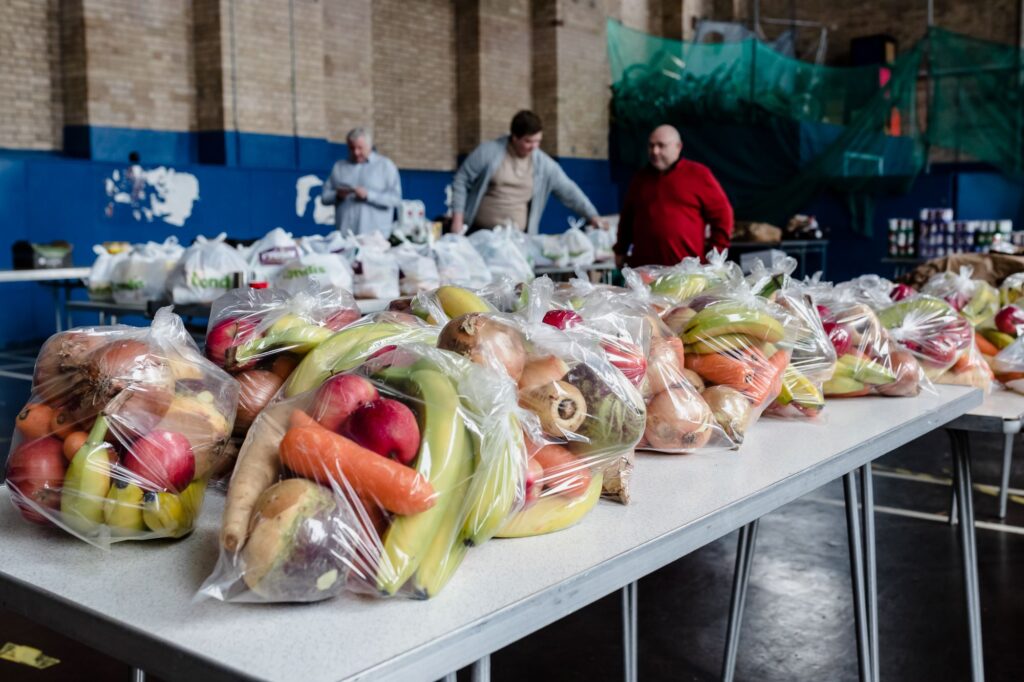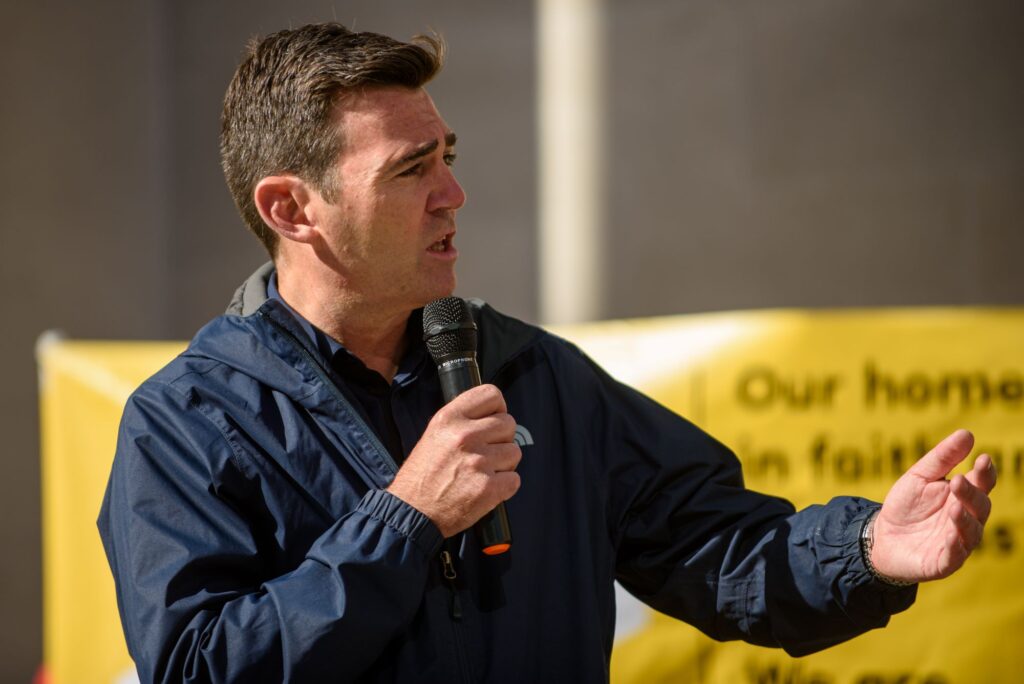
If you’re reading this, then chances are you are more curious and more engaged than most.
You’ll have some sense of this being a significant year for the North East.
Let’s lay out exactly how it’s significant, and what role there is for all of us as part of it.
There’s the expected General Election, the anticipation of a change in government for the first time since 2010, and potentially the first change to come with a significant majority since 1997.
There’s also the expanded North East devolution deal, which will mean a single figurehead and co-ordinated regional government from Berwick to Bishop Auckland.
That’s a vast area, with a population of around two million people.
The election of a mayor to represent them will, at a stroke, put the North East at the table with Greater Manchester, the West Midlands and West Yorkshire.
That, coupled with the expectation that the North East, as a still predominantly Labour area, will have the party which represents it in power in Westminster, means that the region is set to become an influential player in national politics.
That’s how it’s a significant year, but what about why?
The why is a less positive story.
This year is significant because of the challenges the region faces.
There are economic challenges, there are health challenges, and there are moral ones too.
On the economy, the region’s productivity, measured in the average economic value an hour of our time is worth, is 11% below the national average.
That’s the biggest the gap has been since the 2008 financial crisis, and it’s getting wider.

Between 2019 and 2021, North East productivity grew by just 2%, while nationally it went up by 7%.
Now, there are lots of reasons for this. We have a big public sector, and big chunks of our economy lie in sectors like health, leisure and hospitality, all of which are traditionally low productivity and grow by adding more hours.
What about health?
Recent analysis from the Office for National Statistics found the North East had the lowest life expectancy of any English region.
At 77.2 years for men, and 81.2 years for women, we’re about 18 months below the English average and, in common with the rest of the country, life expectancy is falling.
The average North Easterner’s life expectancy was 9.6 months shorter in 2020-22 than it was in 2017-19.
That poor overall health transfers to the workforce too, where a third of those who are economically inactive are suffering from long term ill health.
Having a quarter of the region’s working age population out of work acts as a drag on our economy, especially given our low levels of productivity.
Then there’s another issue.
Child poverty.

It’s a moral issue, and one which is crying out to be the umbrella mission of 2024’s new North East mayoralty.
In the North East, 35% of children live in poverty. That’s 11 from every class of 30.
The horror is that we’re on a sustained upward trajectory, as that figure was 26% in 2014/15.
Worse, work is not a sure way out of poverty, as two-thirds of children living in poverty in the North East are in working households, and between 2014/15 and 2019/20 the number of children in households in in-work poverty rose by 60,000.
The figures are higher still for lone parent households, or those with a child under five.
It’s a scourge on the whole country, with the Joseph Rowntree Foundation last year publishing research which showed 3.8 million people across the UK were not just in poverty, but destitute, and unable to meet the basic human needs to stay warm, dry, clean and fed.
It’s a fiendishly complicated, multi-layered issue, but it tells us about the impact of low pay and unstable work. It tells us about opportunity and the lack of access to it. And it tells us how support services are failing.
These issues are, of course, connected. Low productivity is linked to low pay, and poor health limits career opportunities or keeps people out of the workforce altogether. Addressing either or both productivity or health will impact positively on child poverty.
In the last few weeks, the Centre for Cities and IPPR think tanks have taken aim at productivity and health respectively, seeing them as critical to the nation’s prosperity.
These are national problems, but ones the North East feels more acutely.
The challenge for the new North East mayor will be how to address them, when progress will take years and not always be obvious, and when there are competing demands in more tangible areas like transport, housing or adult skills.
Andy Burnham, mayor of Greater Manchester since 2017 and currently pursuing a third term at May’s mayoral elections, has established a model which shows you need to focus on one priority across your four years in office.

He’s shifted from homelessness in his first term to transport in his second, and has a range of issues from education to the environment which could theme a third term in office.
Even as the most undeniably successful regional mayor, both in terms of profile raising and policy delivery, Burnham still speaks regularly about ‘unfinished business’.
In that way, he’s both a guide and a warning for the mayors which follow him to be careful not to bite off more than they can chew.
There’s the old adage in politics, regularly attributed to former New York Governor Mario Cuomo, but as with all of these things, it could have been said by anyone, that you campaign in poetry and govern in prose.
The point being that in the run up to an election, candidates speak in flowery, romantic language about all the things they are going to do differently and all the life changing progress that’s going to be made on their watch.
Then, once in office, they switch to the more mundane, but ultimately far more important, job of actually delivering on those promises.
The reality is that these problems are hard, and public policy is an oil tanker where a turn of the wheel takes an age to bring the ship around. Maintaining focus while it does is tough.
In the North East, child poverty has to be the policy focus.
Morally, it’s the only option as an umbrella mission.
The human damage it does, the damage of lost potential is too great for it not to be top of the list.

Yes, there are other priorities we know about now, and yes, there will be other issues which rear their heads over the next four years.
But, every action taken from the new North East Combined Authority and the new Mayor’s Office ought to be measured against its impact on child poverty.
Bus franchising, childcare grants, housing development, green jobs. Alongside ticking their own practical boxes, they all need to be designed to incrementally improve our performance on child poverty.
This is a time for coordination and unity.
That’s a problem the North East has which Greater Manchester doesn’t so much.
Burnham is fortunate he has a hub-and-spoke region, with central Manchester the clear and obvious economic driving force for his area.
That’s not the case for the North East, it’s more sprawling, and it’s incredibly diverse.
What works for Newcastle might not work for Newbiggin, Seahouses for Seaham, Wylam for Whickham.
IPPR’s health research found a spread of well over a decade in life expectancy between the most and least deprived parts of our region, and the North East Child Poverty Coalition estimates child poverty was 29.4% in North Tyneside in 2021, and 37.9% in neighbouring Newcastle.
Those are not differences you can paper over, and are part of the reason previous efforts to coordinate across the region have fallen apart. That happened as recently as the process which led to the election of the North of Tyne mayor in 2019, where only three of the seven local authorities could agree on the deal, principally disagreeing over the amount of additional funding it unlocked.
That’s less of an issue this time, with the North East deal the most generous of any English devolution deal – it contains, for example, an investment pot of £48m per year, compared to Greater Manchester’s £30m.
Tying the North East together needs the region to unite behind a mayor, or at least behind the concept of devolution as a tool for progress.
Devolution gives us the opportunity to work together to fix our region’s problems and unlock its potential – there’s autonomy over funding, the chance to tailor and adjust national policy to fit our local contexts, and there’s the chance to once again punch our weight on the national stage.
We’ll all have our part to play.
Business and individual organisations will be the ones delivering change on the ground, hopefully enabled by a proactive mayor and Combined Authority.
The people of the North East are the ones with the in-depth knowledge of their circumstances, and the ideas needed to change things for the better.
And, right now, if you’re one of those engaged, interested people who know what’s coming and know how significant 2024 will be, taking an active role means finding someone who isn’t engaged and explaining why it’s so important.
Let’s make sure we all step up and take an active role in our region’s future.
Arlen Pettitt is a freelance writer and policy consultant and is the author of the weekly Wor Room newsletter on policy issues in the region.

In 2022/23 the Community Foundation supported charitable organisations across North East England with grants totalling £7.9m










